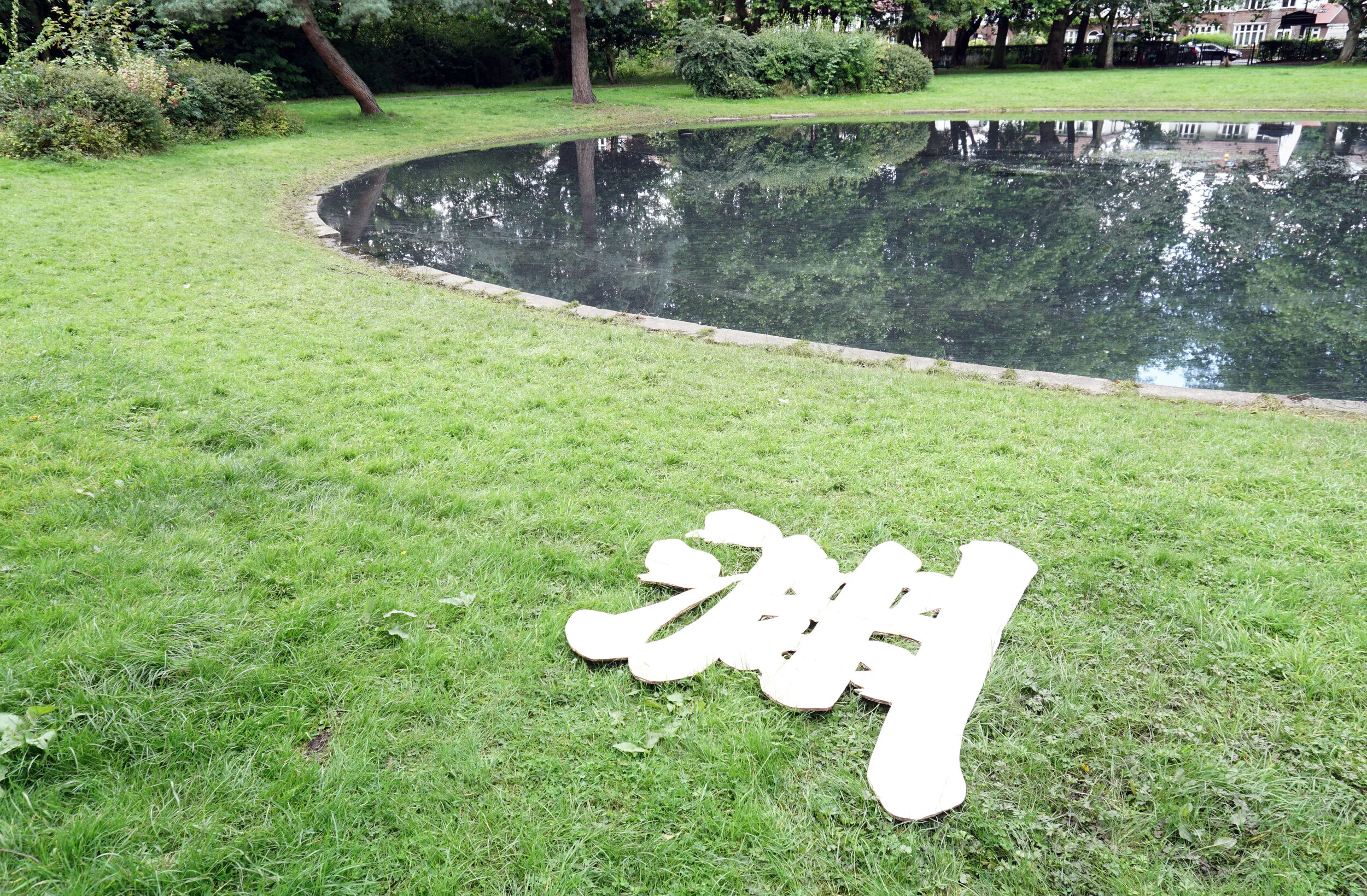The fourth verse describes the Dao as the “fathomless” and enduring natural processes that with time cause all objects to disintegrate. Stefan Stenudd (on Taoistic.com) writes:
“We should ponder this, so that we remember to pay the most attention to the things that seem to be the least significant. The most enduring powers in the world are those that stand out the least. Sharpness does not last, nor does the tightness of a knot, or the brightest light. There is nothing that remains longer than its own dust. So, if we become like dust, we will prevail – and we will be in unison with Tao.”
My initial thoughts for a creative response to this verse was to work with some examples of the phenomena described in the verse, such as the erosion of rock by river water, or the decomposition of biological matter. But on reading more about one of the characters used in original text, I wanted instead to create a large cutout of the character, which could then be temporary installed in a landscape and photographed.
The character that caught my interest, 渊 (yuān), is a pictogram—a Chinese character originally derived from a picture—with a double meaning. The two long strokes on the left and right sides represent embankments, with the central component resembling water. The character means ‘deep pond’, as well as ‘deep’ and ‘profound’ .
I felt as though the use of this character in the verse worked well to describe the Dao as ‘that which precedes the Creator’ (Yi Wu); ‘what existed before the beginning’ (Ned Ludd); ‘the forefather of the gods’ (Gia-fu Feng and J English).
At the time I was working on the cut-out of the character there had been lots of heavy rain, resulting in the round basin in my local park in Manchester filling up with water. The water had been sitting there for days, and decaying plant matter and algae had started to create a rotten odour. I decided that this setting, an apparent deep pool would be good place to install the character, not least because we’re reminded by verse four that all things—the water, the park, the smell and the reaction I had to the smell—are fleeting.
第四章:挫其锐
在第四章,道被形容为“万物之宗”,是天长地久的自然规律,且能让一切物体分解、解体的规律。斯特凡·斯特努德Stefan Stenudd(在Taoistic.com)有写:
“我们应该思考这个问题,这样我们会记得把最多的注意力放在仿佛最不重要的东西上。世界上最持久的权威是最不出众的权威。尖锐不持久,结子的紧度、最亮的灯同样不持久。没有任何东西能比它灰留存更久。因而,如果我们成为灰尘,我们会取得胜利,我们会跟道同步。”
“We should ponder this, so that we remember to pay the most attention to the things that seem to be the least significant. The most enduring powers in the world are those that stand out the least. Sharpness does not last, nor does the tightness of a knot, or the brightest light. There is nothing that remains longer than its own dust. So, if we become like dust, we will prevail – and we will be in unison with Tao.”
我最早对第四章的创作想法是探索章节中提到的几个自然现象,比如河水侵蚀石头或生物分解等现象。但在我研究原文的时候,有一个字我觉得特别有意思,从而使我下决定制作一个很大的汉字,安装在场景里拍摄。
这个字——“渊”,是象形字:
“在甲骨文和金文中左右有表示水岸的丿丨,中间是像水的样子,合起来像一个中间有水洄流的深潭。渊本意指回旋的水,引申指深潭、深水,又引申指深、深厚。”
我觉得这个渊字跟第四章最后的两句非常合适:“吾不知谁之子,象帝之先。”
在我制作这个渊字的时候连续下了几天的大雨,因此家里附近的公园的圆盆充满了水。数天不流动的水,因为有生物和藻类,所以有了一个恶心的臭味。我决定这个地方很适合安装我的渊字。它不仅像一个“渊”(深池沼),而且第四章提醒我们所有的东西——那个水、公园、臭味和我对臭味的反应,都稍纵即逝。





